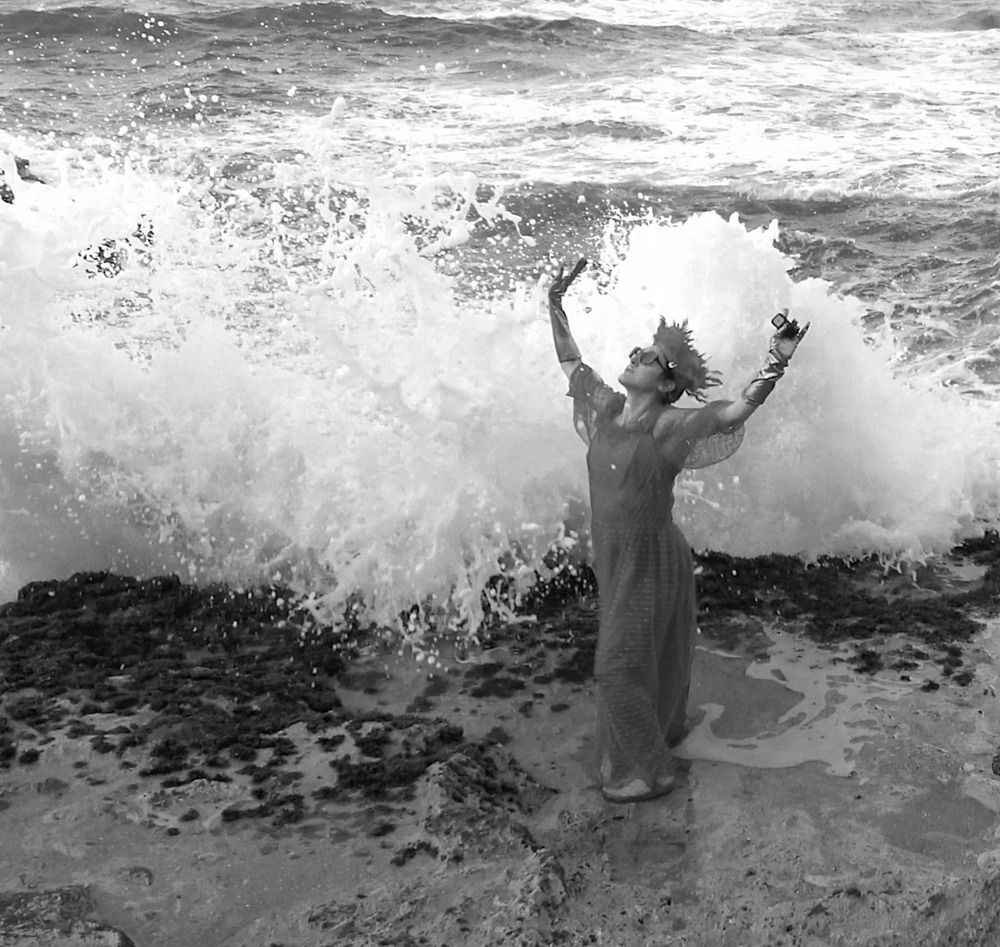
MÁS ALLÁ DE LOS BINARIOS / BEYOND THE BINARIES
first performed on December 27, 2020
Drap Art Festival of Sustainable Art, Placa Reial
performed -25 times in 2020
JESSICA FAIRFAX HIRST
Malaga, Spain & Cabarete, Dominican Republic
296633146p296633146a296633146l296633146m296633146e296633146r296633146f296633146i296633146s296633146h296633146m296633146a296633146n296633146@296633146g296633146m296633146a296633146i296633146l296633146.296633146c296633146o296633146m
Instagram (@)palmerfishman
MÁS ALLÁ DE LOS BINARIOS / BEYOND THE BINARIES
JESSICA FAIRFAX HIRST
“Más Allá de los Binarios/ Beyond the Binaries” was originally meant to be a live performance lecture, but as with so many projects in 2020, circumstances forced its transformation into a 33-minute video essay, illustrated with visual material created, “sampled” and remixed from my own performance and visual art. The problem of the piece is two-fold: an exploration of the content I will explain below, and a journey into uncharted territory for my art practice in terms of form, experimenting with video-collage, sound, and Merce Cunningham-like games of chance to juxtapose unlike visual and spoken material to see what new connections arose. Like so many of us, the limits imposed by the pandemic in some cases produced something wonderful, and “Beyond the Binaries” is one of those in that it opened up a whole new way of working for me and synthesized together my different careers in environmental policy, psychology, and contemporary performance.
In the piece I elaborate on Paul B. Preciado’s thesis, as expressed in the new Gucci campaign, that the transversal thread connecting the roots of the climate crisis, racism, misogyny, homophobia, transphobia, ableism, and colonialism, is the binary thought that forms the basis of the structures of the sciences and heteronormative-patriarchy societies.
I build my argument with episodes from my own studies on the environment (Stanford and Berkeley), psychology (Johns Hopkins), and social practice contemporary art (Otis College of Art and Design), plus my experiences working in the Clinton-Gore Administration on international climate change policy. I add to this lessons learned from my multiple mental health crises, continuously morphing disabilities, and observations of women scientists I have met who dared to approach environmental science in new ways.
I cite Theo Coburn’s discoveries of how common household products disrupt hormones and reproduction, and I reflect on my ecology professor Joan Roughgarden, who transitioned gender years after I graduated, and subsequently revisited how much ecology had missed or gotten wrong about sex and gender in the natural world due to culture-bound blinders that originated with Darwin. I fold in Mark Fisher’s and Johanna Hedva’s pioneering work on how toxic cultural, political environments contribute to chronic illness.
I include visual material from performances in Puerto Plata, Quito, Riga, Los Angeles, Almeria, New York, Santo Domingo, Jordan, Israel, Nicaragua, Mexico City, Bankgok, and more, as well as graphic illustrations, and paintings.